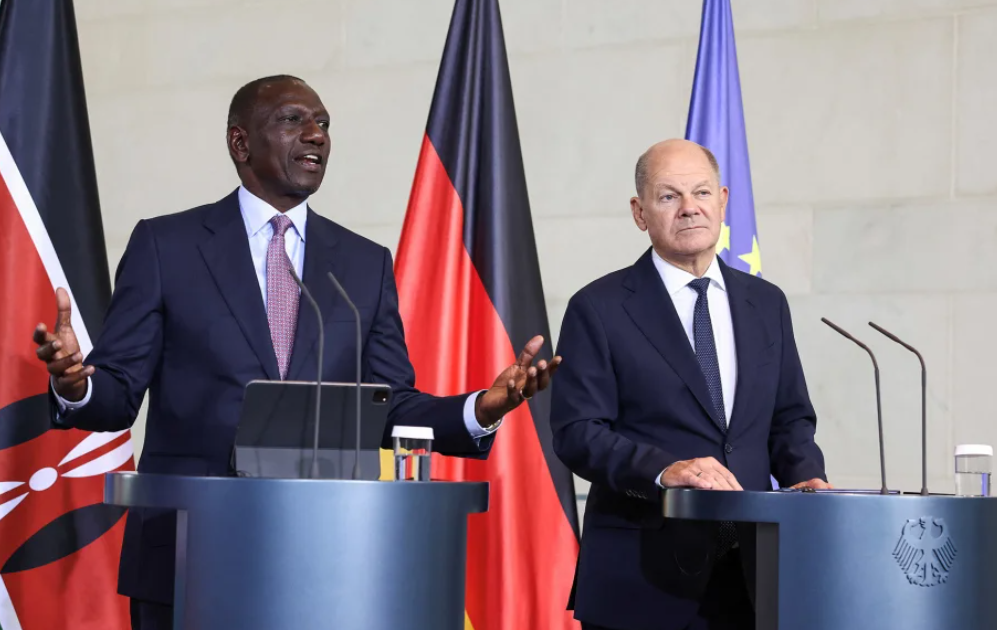Germany has formalized a controlled migration agreement with Kenya, allowing skilled and semi-skilled Kenyan workers to enter the country. The deal was finalized on Friday by German Chancellor Olaf Scholz and Kenyan President William Ruto, who is on a two-day official visit to Germany.
While the specific number of workers anticipated under the agreement has not been revealed, Kenya’s presidential office had earlier indicated that it is exploring employment opportunities for up to 250,000 Kenyans. This deal marks a significant step in strengthening labor mobility between the two nations.
Migration has become a contentious issue in Germany, contributing to the rise of the far-right Alternative for Germany (AfD) party. Following the migrant crisis of 2015-2016, during which Germany welcomed over a million people, and the recent influx of Ukrainians fleeing Russia’s invasion, the government is now intensifying its approach to immigration.
German Chancellor Olaf Scholz’s administration has recently announced stricter border controls and new security measures to accelerate the deportation of rejected asylum seekers and undocumented immigrants, starting next week. The new migration deal with Kenya aims to address labor market needs while managing irregular migration.
The agreement facilitates the entry of skilled and semi-skilled Kenyan workers into Germany, helping to alleviate the country’s labor shortage. It also streamlines the repatriation process for Kenyan nationals currently in Germany illegally, with new measures such as using biometric data and accepting expired passports for identification.
Germany has approximately 14,800 Kenyan citizens residing in the country, with around 800 needing to leave. Interior Minister Nancy Faeser expressed satisfaction with the agreement, highlighting its dual focus on effective deportation and attracting needed talent to the German economy.
In addition to the Kenya deal, the German Interior Ministry is in confidential discussions with other nations to establish similar migration agreements. This move follows a recent violent incident in Solingen, where three people were killed by a Syrian man with alleged ISIS connections, who had been slated for deportation.




